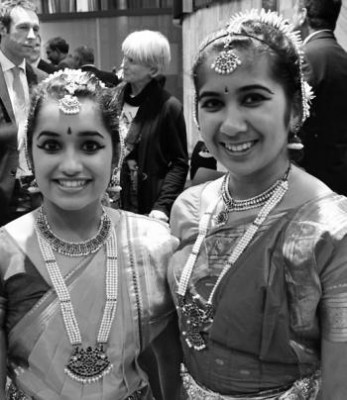The number of people in New Zealand who can speak Hindi nearly tripled between 2001 and 2013. Hindi is now the fourth most spoken language in New Zealand.
 Satya Dutt founded the Hindi Language and Culture Trust of New Zealand (the Trust) in 2003. The Trust began celebrating Hindi by organising day long workshops and a cultural celebration evening to support the teaching and learning of Hindi.
Satya Dutt founded the Hindi Language and Culture Trust of New Zealand (the Trust) in 2003. The Trust began celebrating Hindi by organising day long workshops and a cultural celebration evening to support the teaching and learning of Hindi.
“The Hindi language is an important aspect of our cultural identity and has contributed immensely to our sense of belonging in New Zealand” he explains.
Development of Hindi Language Celebrations
The celebration of Hindi in New Zealand began as Hindi Language Day. The day was an opportunity to promote the use of Hindi in families and communities, as well as share the Hindi language and Indian culture with wider New Zealand. Mr Dutt says community saw a language celebration as an effective way of raising the profile of Hindi in New Zealand.
Following a successful Hindi Language Day in 2011, the community realised that there was enthusiasm to extend this to a week-long event. The first Hindi Language Week was held in 2012. The path to establishing a language week was long and took a lot of work and collaboration. Mr Dutt says it took more than a decade to get the Hindi Language Week to its current state. Mr Dutt reminds others working with their heritage or community language “to take one step at a time” when it comes to organising a language celebration.
Dates for Hindi Language Week are fixed and held to coincide with the World Hindi Day celebration on 14 September each year.
Collaboration and the wider community
The trust works with other organisations such as Teach Hindi NZ, to organise free public events and resources as part of Hindi Language Week. The week consists of cultural and school-related events, language workshops and speech competitions. Online video and audio resources featuring local celebrities are promoted to ensure the language week has a wide reach across New Zealand, as well as creating resources that can be used in future.
To promote the use and status of Hindi in wider New Zealand, the community works hard to ensure that events are inclusive. “Our programme for the Hindi Language Week provides an opportunity for non-native Hindi speakers to also partake in the event,” Mr Dutt says. For example, Hindi Language Week resources are also published in other languages such as Te Reo Māori and Samoan and will be made available in Tongan this year. This is particularly important to the Indian community as it “allows us to recognise the special status of Te Reo Māori in New Zealand and provides us with the opportunity to connect Hindi speakers with speakers of Pacific and other community languages” explains Mr Dutt.
A community effort
The process of establishing this celebration required hard work and dedication. Mr Dutt says that although the community has spent a substantial amount of time and effort on the development of the Hindi Language Week, much of the success can be attributed to extensive engagement efforts with the community, stakeholders, media and educational institutions. Involving the community helped extend this network and allowed the group to mobilise people and develop “partnerships with key organisations and community leaders.” For example, Papatoetoe High School has provided significant support and provided a hub for the trust to work from.
Take home advice
- Good things take time – planning your language celebration may take longer than expected but don’t give up!
- Collaborate and coordinate – link up with passionate language advocates in your community. Perseverance is the keyword.
- Make it fun.
